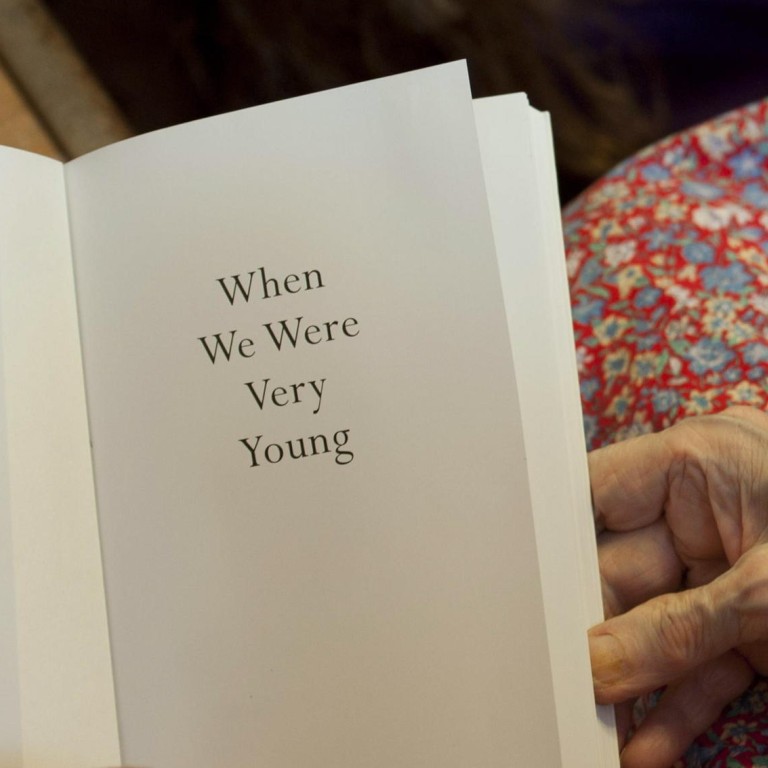
Poetry used to rekindle memories in patients with dementia
Retirement home in central England among many institutions turning to verse to help provide respite from symptoms of dementia
The teenager's voice breaks the silence that hangs over the dozing, grey-haired figures. "If you can keep your head when all about you are losing theirs and blaming it on you," she recites - "you'll be a man, my son", finishes one of the pensioners, with a burst of recognition.
Alzheimer's has stolen most of Margaret's memories, but she can still remember the line from Rudyard Kipling's famous poem that she learnt years ago, a rare moment of clarity in the fog of the cruel disease.
This retirement home in central England is one of many institutions and hospitals across the country turning to poetry to provide some respite from the symptoms of dementia, such as the loss of memory, communication and basic skills.
There is a sense of achievement … because they can remember something
While it provides no cure, the rhythm and pace of well-known verse can act as a trigger for memories and speech, according to Jill Fraser, whose charity "Kissing it Better" organises reading sessions for the elderly.
If patients "hear one word that they can remember from poetry, it brightens their day up", said Elaine Gibbs, who runs the Hylands House retirement home in Stratford-upon-Avon, which was fittingly, the home of William Shakespeare.
Miriam Cowley, elegant in a flowered dress and grey hair tied up into a bun, listens attentively as a teenager reads her "Daffodils" by William Wordsworth.
"I did know the poem but I've forgotten it. I learnt it when I was a kid at school, a long time ago," said the retired teacher, who suffers from short-term memory loss.
"It brings back good memories. I will have some good dreams after that, dreams of daffodils, of trees."
The home can be a sombre place because of the prevalence of residents with Alzheimer's, dubbed "the long good-bye" because of the way it slowly steals away everything that makes a person who they are.
But as a woman bashes a plate incessantly against a table at one end of the room, seemingly oblivious to her surroundings, one of the teenage volunteer readers says spending time there "gives you a real buzz".
"You come in here and everyone is sitting there by themselves," says Hannah Ciotkowski, 15. Then when someone starts reading a poem aloud "you can immediately see life in them, they are smiling".
"It's wonderful when suddenly they join in with a line," adds Anita Wright, an 81-year-old former actress with the Royal Shakespeare Company who also reads poetry at Hylands.
She recalls how one patient with advanced dementia broke down in tears when she heard a poem about a man bidding farewell to his lover, and started recounting how her fiance had died.
"She had not said a single word since she had been to this home and the poem just broke open the dam," Wright said.
Lyn Darnley, head of voice at the Royal Shakespeare Company says poetry can be very powerful.
"These rhythms run deeply inside of us and poetry can touch and spark memories of not just emotions but the deep senses of language," she said.
Experts caution that poetry will not halt the onslaught of dementia, which affects 800,000 people in Britain.
"Poetry does not cure dementia," says Dave Bell, a specialist nurse with Dementia UK, a charity that works to improve the quality of life for people affected by the disease.
"But there is a sense of achievement and self-esteem for the person because they can remember something," he says.
